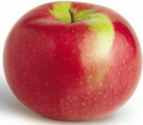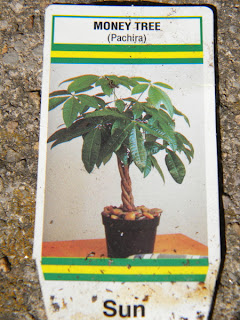Allergies...Ugh - but this info may help us all.....
I have had a terrible week this week as far as allergies go. I still don't know what I am actually allergic to, but Tuesday night and most of Wednesday I was completely suffering more than all year! I took a normally effective medicine, Claritin, but it felt like I took nothing at all. I have tried other medicines, but most make me feel, as they say, foggy or cloudy, but I say like I am swimming in gel. (I hate that feeling!)
I complained to anyone who would listen, and found out some interesting things along the way. Many more people suffer from allergies than you think - more than 26 million Americans suffer from seasonal allergies. Allergies also take a toll on mental well-being. Studies have shown that during ragweed season, allergy sufferers often experience a general sense of fatigue — especially mental fatigue — and are more prone to feelings of sadness. People who suffer from allergies also are up to 14 times more likely to experience migraine headaches than those who don’t have allergies.
I noticed yesterday in particular, that after I ate an apple, I felt slightly better. I had noticed this on another occaision, but didn't think anything of it, but yesterday I wondered what was in an apple that could make my allergies a little better. We have all heard the saying "An apple a day keeps the doctor away" but I never associated an apple with an allergy remedy, just that it was a general good health recommendation.
But a friend told me to: "Eat lots of apples - the flavonoids reduce your histamine levels :) Also pineapples, mangoes and other Vit A's." My hubby has been saying for years (as long as I have been complaining) to eat the local honey. And my friend said "Hubby' right too with the honey - gotta be local though for the same pollen. bzzzz "
What are flavonoids? And does local honey really help?
Well, to the internet I went. Apparently, flavonoids are a phytochemical that have some very great benefits. Some of the activities attributed to flavonoids include anti-allergic, anti-cancer, antioxidant, anti-inflammatory and anti-viral. It turns out vitamin C is a natural antihistamine too, helping to reduce nasal secretions and inflammation. Flavonoids such as quercetin, rutin, and hesperidin also have antihistamine properties, among many other important health benefits, and work well with vitamin C. (click on links to find out just how great these are!)
Quercetin, which is known for its ability to relieve hay fever, eszema, sinusitis and asthma. Luckily, vitimin C and the flavonoids occur together in many favorite garden foods, such as berries, plums, citrus fruits, peppers, spinach, and broccoli. Flavonoids are found in most plant material, and give fruits their colors. Green and black tea contains about 25% percent flavonoids. You can find flavonoids in apples and red onions (which have the specific flavonal, quercetin), and citrus fruits (which have the specific flavonals rutin and hesperidin). Red wine contains high levels of flavonoids, mainly quercetin and rutin. The high intake of red wine (and flavonoids) by the French might explain why they suffer less from coronary heart disease then other Europeans, although their consumption of cholesterol rich foods is higher (French paradox). Many studies have confirmed that one or two glasses of red wine daily can protect against heart disease. Tea flavonoids have many health benefits. Tea flavonoids reduce the oxidation of low-density lipoprotein, lowers the blood levels of cholesterol and triglycerides. Soy flavonoids (isoflavones) can also reduce blood cholesterol and can help to prevent osteoporis. Soy flavonoids are also used to ease menopausal symptoms. So do flavonoids really help? Apparently in more ways than one.
Honey has its own set of beneficial properties, however allergy relief is not at the top of the list. For at least 2700 years, honey has been used to treat a variety of ailments through topical application. Antioxidants in honey have even been implicated in reducing the damage done to the colon in colitis. Honey has also been used for centuries as a treatment for sore throats and coughs, and according to recent research may in fact be as effective as many common cough medicines, but this comes from an initial study with a small sample size. Though widely believed to alleviate allergies, commercial honey has been shown to be no more effective than placebos. A recent study did show that the pollen collected by bees can exert an anti allergenic effect and, in a complicated explanation, can have the effect of reducing allergic reaction, but to me there is no noticable effect. My hubbys simplistic explaination for honey as an allergy remedy is that by constant exposure the body becomes tolerant to the pollens and irritants in the area that cause the body to release histamines and its domino affect, and thus the allergic reaction is dimished over time. Either way, I will keep eating the local honey mainly because I love honey, and it makes me feel better just because it tastes so good.
We have been hearing of the benefits of some of these foods for quite a while, but I never knew that they would help allergies too. So if you suffer from allergies and want some relief, want to boose your antioxidents, inhibit some cancers, live healthy and happy - eat your flavonoids and honey!
Well, maybe the happiness would take a little more, but that's another blog post....
I complained to anyone who would listen, and found out some interesting things along the way. Many more people suffer from allergies than you think - more than 26 million Americans suffer from seasonal allergies. Allergies also take a toll on mental well-being. Studies have shown that during ragweed season, allergy sufferers often experience a general sense of fatigue — especially mental fatigue — and are more prone to feelings of sadness. People who suffer from allergies also are up to 14 times more likely to experience migraine headaches than those who don’t have allergies.
I noticed yesterday in particular, that after I ate an apple, I felt slightly better. I had noticed this on another occaision, but didn't think anything of it, but yesterday I wondered what was in an apple that could make my allergies a little better. We have all heard the saying "An apple a day keeps the doctor away" but I never associated an apple with an allergy remedy, just that it was a general good health recommendation.
But a friend told me to: "Eat lots of apples - the flavonoids reduce your histamine levels :) Also pineapples, mangoes and other Vit A's." My hubby has been saying for years (as long as I have been complaining) to eat the local honey. And my friend said "Hubby' right too with the honey - gotta be local though for the same pollen. bzzzz "
What are flavonoids? And does local honey really help?
Well, to the internet I went. Apparently, flavonoids are a phytochemical that have some very great benefits. Some of the activities attributed to flavonoids include anti-allergic, anti-cancer, antioxidant, anti-inflammatory and anti-viral. It turns out vitamin C is a natural antihistamine too, helping to reduce nasal secretions and inflammation. Flavonoids such as quercetin, rutin, and hesperidin also have antihistamine properties, among many other important health benefits, and work well with vitamin C. (click on links to find out just how great these are!)
Quercetin, which is known for its ability to relieve hay fever, eszema, sinusitis and asthma. Luckily, vitimin C and the flavonoids occur together in many favorite garden foods, such as berries, plums, citrus fruits, peppers, spinach, and broccoli. Flavonoids are found in most plant material, and give fruits their colors. Green and black tea contains about 25% percent flavonoids. You can find flavonoids in apples and red onions (which have the specific flavonal, quercetin), and citrus fruits (which have the specific flavonals rutin and hesperidin). Red wine contains high levels of flavonoids, mainly quercetin and rutin. The high intake of red wine (and flavonoids) by the French might explain why they suffer less from coronary heart disease then other Europeans, although their consumption of cholesterol rich foods is higher (French paradox). Many studies have confirmed that one or two glasses of red wine daily can protect against heart disease. Tea flavonoids have many health benefits. Tea flavonoids reduce the oxidation of low-density lipoprotein, lowers the blood levels of cholesterol and triglycerides. Soy flavonoids (isoflavones) can also reduce blood cholesterol and can help to prevent osteoporis. Soy flavonoids are also used to ease menopausal symptoms. So do flavonoids really help? Apparently in more ways than one.
Honey has its own set of beneficial properties, however allergy relief is not at the top of the list. For at least 2700 years, honey has been used to treat a variety of ailments through topical application. Antioxidants in honey have even been implicated in reducing the damage done to the colon in colitis. Honey has also been used for centuries as a treatment for sore throats and coughs, and according to recent research may in fact be as effective as many common cough medicines, but this comes from an initial study with a small sample size. Though widely believed to alleviate allergies, commercial honey has been shown to be no more effective than placebos. A recent study did show that the pollen collected by bees can exert an anti allergenic effect and, in a complicated explanation, can have the effect of reducing allergic reaction, but to me there is no noticable effect. My hubbys simplistic explaination for honey as an allergy remedy is that by constant exposure the body becomes tolerant to the pollens and irritants in the area that cause the body to release histamines and its domino affect, and thus the allergic reaction is dimished over time. Either way, I will keep eating the local honey mainly because I love honey, and it makes me feel better just because it tastes so good.
We have been hearing of the benefits of some of these foods for quite a while, but I never knew that they would help allergies too. So if you suffer from allergies and want some relief, want to boose your antioxidents, inhibit some cancers, live healthy and happy - eat your flavonoids and honey!
Well, maybe the happiness would take a little more, but that's another blog post....





Very Interesting. Lots of grass pollen where I live and though I don't suffer from allergies
ReplyDeleteI know plenty who do. Great Article~~ Leta
That's right! Also, go for the deep dark colored fruits and vegetables. And make sure to eat the skins!
ReplyDeleteGreat article. I guess you can teach a old dog new tricks. I'll pass the word. Rose
ReplyDelete